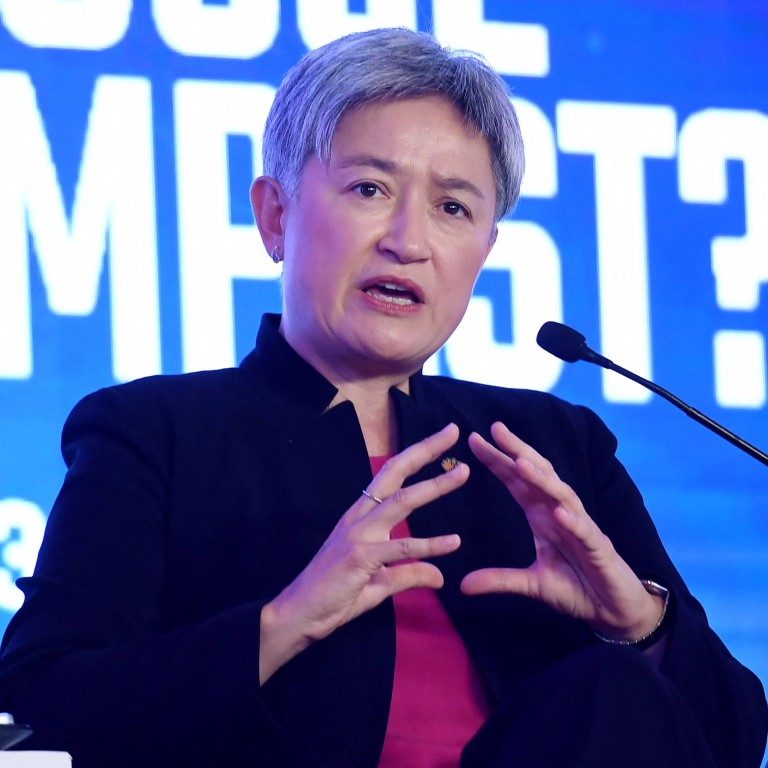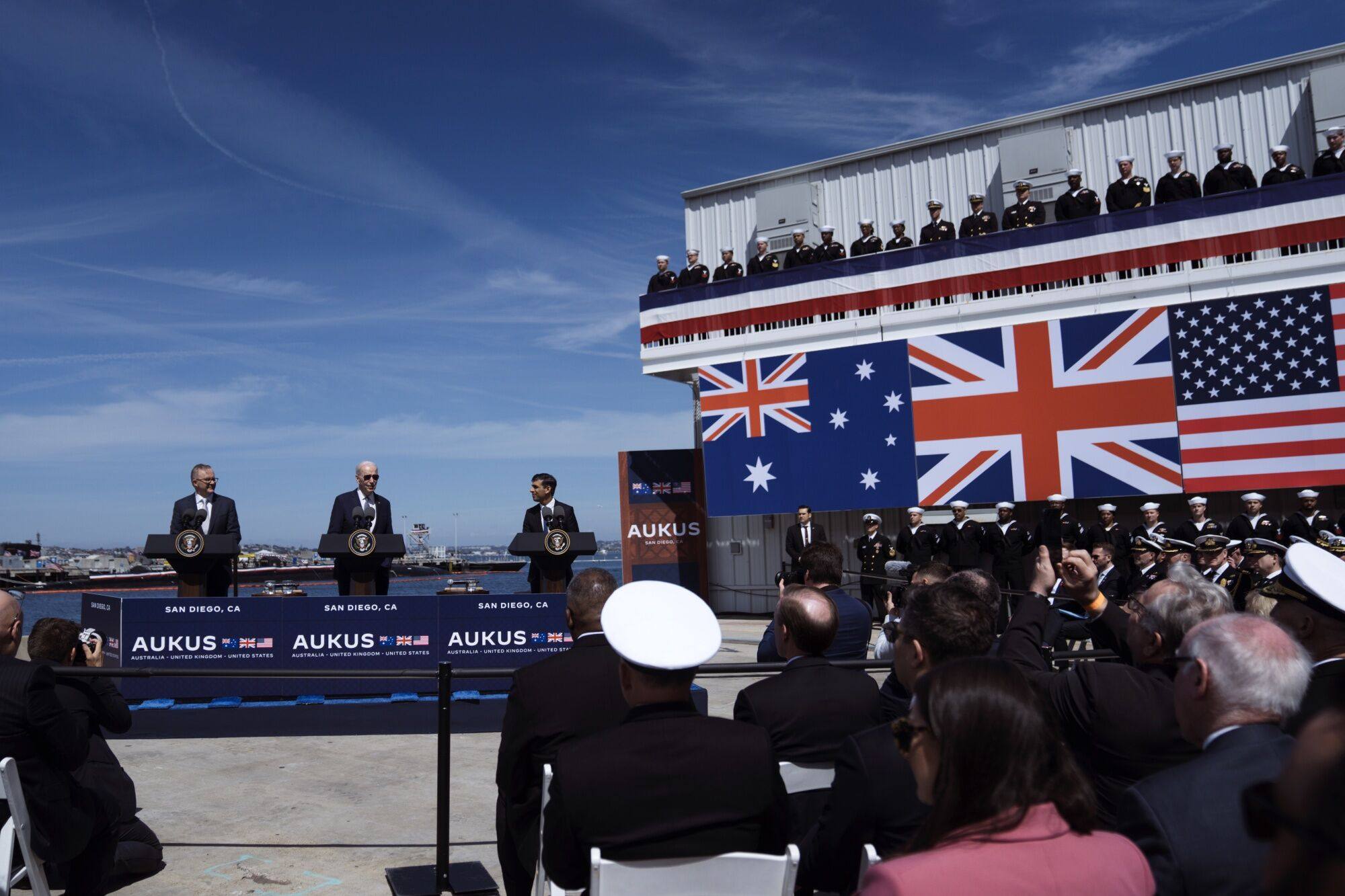
Australia seeks Aukus submarine deal to ‘better ensure a strategic equilibrium’, foreign minister says
- Australia, a ‘middle power’ like most nations in Southeast Asia, ‘will never seek to acquire nuclear weapons’, says Foreign Minister Penny Wong
- As China’s mission to the UN condemned the submarine deal by the Western allies, Wong says that the submarines will ‘help keep the peace’ in the region
The deal is forecast to cost Australia up to A$368 billion (US$245.3 billion) between now and the mid-2050s.

“We don’t seek to acquire this capability to do anything other than to seek to better ensure a strategic equilibrium,” Wong told CNA in a wide-ranging exclusive broadcast interview. She was responding to a question on how she would reassure neighbours amid concerns.
She added that Australia is acquiring this capability “transparently”, pointing to briefings that the country has provided to regional leaders.
“We will provide more briefings. We will continue to talk with the region and listen to the region about any concerns they may have,” she said.
US says close Australia ties ‘secret sauce’ in space race with China
She stressed that the country “will never seek to acquire nuclear weapons”.
“What we are seeking to do is to replace an existing and ageing submarine capability with a new capability, which is nuclear propulsion, very different to nuclear-armed,” she said.
Effect of greater Australian defence capability
Addressing a question on China’s views and the risk of greater Australian defence capability proving destabilising instead of stabilising in the region, Wong reiterated the reason for acquiring nuclear-powered submarines.
Australia’s Albanese visits India with trade, China and cricket on his mind
“We want a region where no single country is dominated, (and) no single country dominates,” she said.
“I think people will see we are not a country that is seeking to escalate,” she added.
She noted that she has called for guardrails around the competition between the great powers.
Australia has also offered to brief Beijing, she added.
Relations with Beijing; Pyongyang’s aggression
On how Australia will balance its long-term military strategy with its economic imperatives, which now involve repairing and restoring trade relations with Beijing, the country’s largest trading partner, Wong said it is in both countries’ interests to remove trade impediments.
‘Inevitable’ China-Australia trade ties improve after ‘important step’
“We have said we believe it is possible for us to continue to grow our bilateral relationship if we manage our differences wisely,” she said.
She said that while Australia seeks to be clear about where its national interests lie and to make sovereign decisions about them, it aims to engage China in a way that is respectful, with recognition that Beijing has its own set of interests.

